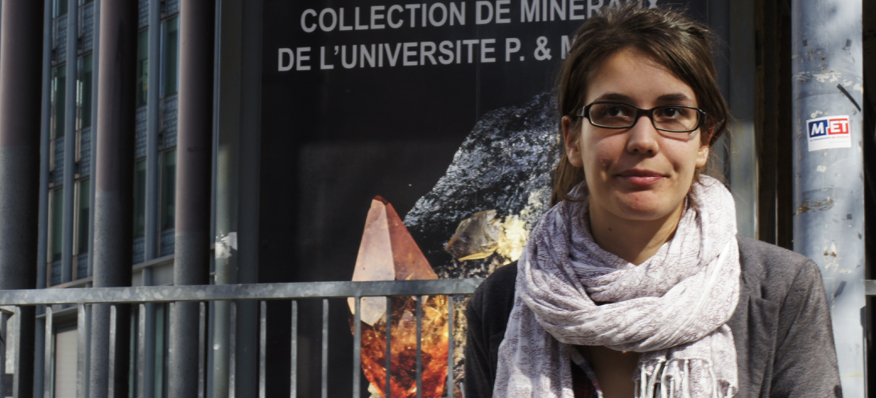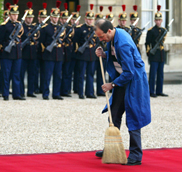'I’d spend less on defence and more on research'

Célia is a 22-year-old biology student at the Sorbonne, Paris. She hopes to work in research once she graduates in 2013. That is, if she manages to find a job and move out of her parents’ house before she reaches 30…
“We used to have an excellent reputation for research in France,” she sighs, appropriately seated on the steps of the faculty named after Pierre and Marie Curie – two of the many French physicians known the world over for their groundbreaking discoveries. “Today, there is not enough money. Or rather, the money is not properly distributed.”
Célia is not sure whether she can count on the next president to do anything about it. “When candidates mention research in their manifestos it’s very vague; they don’t really seem to know what they’re talking about.” But she doesn’t reproach them either. “They can’t know everything about everything,” she shrugs. “They spend all year talking politics, we spend all year talking biology.”
Célia in three questions:
What's good about being a French student?
Is Paris a good place for graduates?
If you were president?
'Let foreign graduates stay in France'
Célia says that most students at her university lean to the left of the political spectrum, albeit half-heartedly. One thing they are keen to see is an end to Interior Minister Claude Gueant’s controversial memo, which forces foreign graduates to return home once they’ve completed their studies, even if they have a job offer in France “We all know someone who knows someone who is in trouble because of that,” she says. “It would be nice to see it scrapped with the next president.”
Célia would also like to see the government act on Paris’s critical housing problem. “I’m ok for now because I live with my parents,” she says. But I don’t want to be still there when I’m 30.” Célia would like to stay in Paris after her studies but she says it’s too expensive to rent an apartment. “I’ll have to find something elsewhere in France, where the rent is manageable.”
Despite France’s excellent reputation for state funded higher education (Célia’s two-year masters degree costs only 900 euros), she finds the system elitist. “It all depends on what education your parents were able to offer you before you even arrive at university,” she says. “There are so few places in medicine for example, you’re only going to get one if your parents were able to give you the best education in the country.”
If Célia were president? “I would spend less on defence and more on health, education and research,” she says, nodding. “But isn’t that what everyone wants?!”




3 Comments
Post new comment